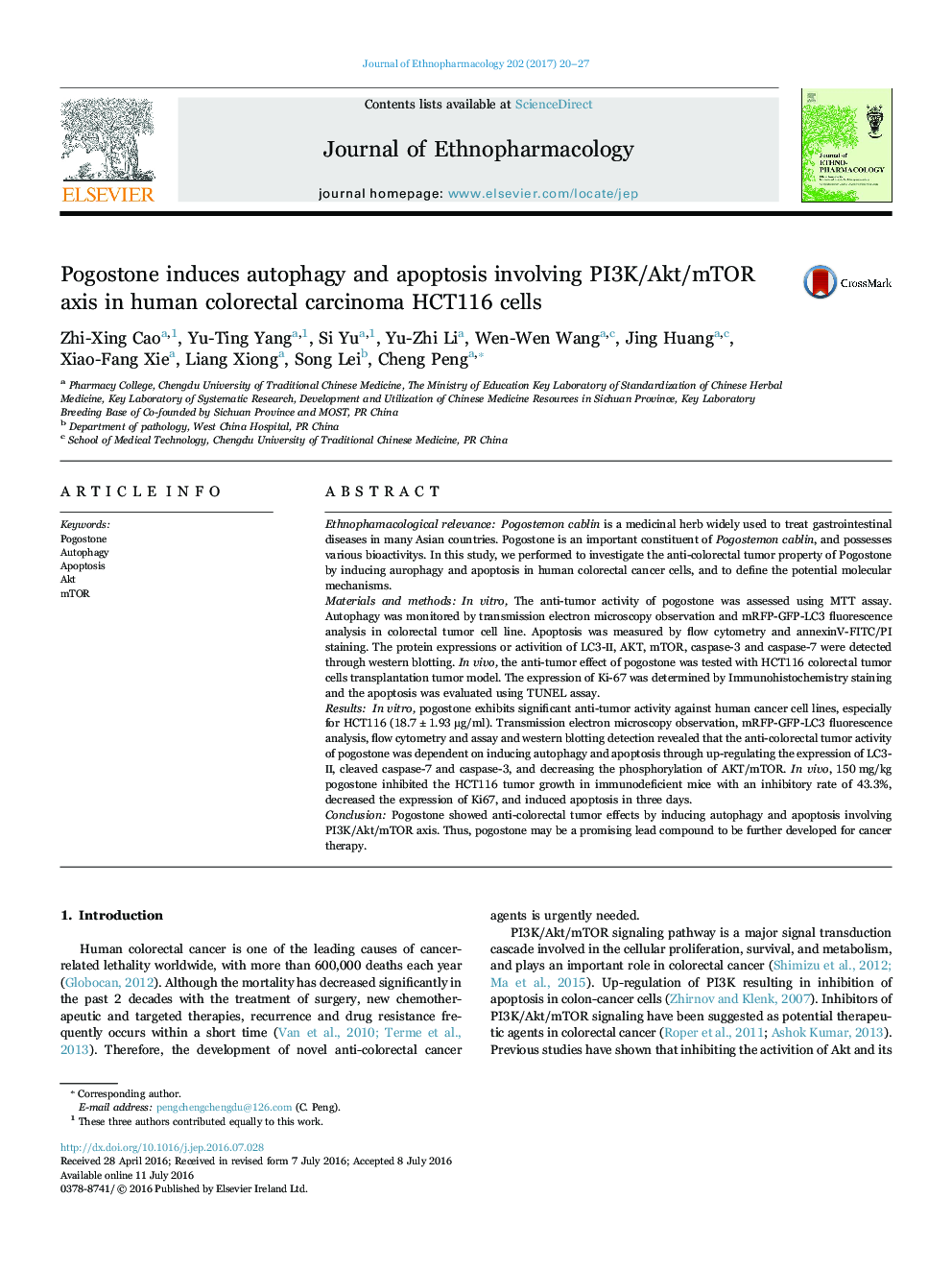| Article ID | Journal | Published Year | Pages | File Type |
|---|---|---|---|---|
| 5556099 | Journal of Ethnopharmacology | 2017 | 8 Pages |
Ethnophamacological relevancePogostemon cablin is a medicinal herb widely used to treat gastrointestinal diseases in many Asian countries. Pogostone is an important constituent of Pogostemon cablin, and possesses various bioactivitys. In this study, we performed to investigate the anti-colorectal tumor property of Pogostone by inducing aurophagy and apoptosis in human colorectal cancer cells, and to define the potential molecular mechanisms.Materials and methodsIn vitro, The anti-tumor activity of pogostone was assessed using MTT assay. Autophagy was monitored by transmission electron microscopy observation and mRFP-GFP-LC3 fluorescence analysis in colorectal tumor cell line. Apoptosis was measured by flow cytometry and annexinV-FITC/PI staining. The protein expressions or activition of LC3-⠡, AKT, mTOR, caspase-3 and caspase-7 were detected through western blotting. In vivo, the anti-tumor effect of pogostone was tested with HCT116 colorectal tumor cells transplantation tumor model. The expression of Ki-67 was determined by Immunohistochemistry staining and the apoptosis was evaluated using TUNEL assay.ResultsIn vitro, pogostone exhibits significant anti-tumor activity against human cancer cell lines, especially for HCT116 (18.7±1.93 μg/ml). Transmission electron microscopy observation, mRFP-GFP-LC3 fluorescence analysis, flow cytometry and assay and western blotting detection revealed that the anti-colorectal tumor activity of pogostone was dependent on inducing autophagy and apoptosis through up-regulating the expression of LC3-⠡, cleaved caspase-7 and caspase-3, and decreasing the phosphorylation of AKT/mTOR. In vivo, 150 mg/kg pogostone inhibited the HCT116 tumor growth in immunodeficient mice with an inhibitory rate of 43.3%, decreased the expression of Ki67, and induced apoptosis in three days.ConclusionPogostone showed anti-colorectal tumor effects by inducing autophagy and apoptosis involving PI3K/Akt/mTOR axis. Thus, pogostone may be a promising lead compound to be further developed for cancer therapy.
Graphical abstractDownload high-res image (170KB)Download full-size image
